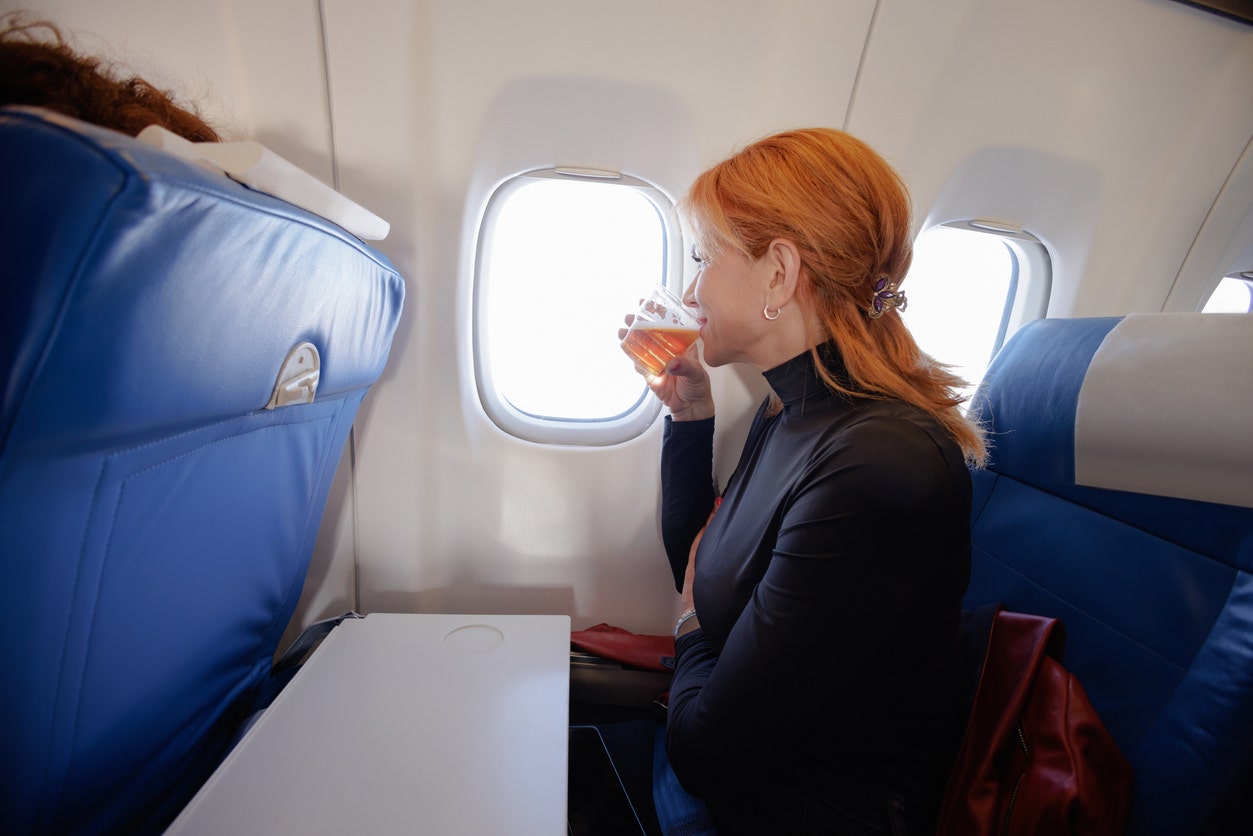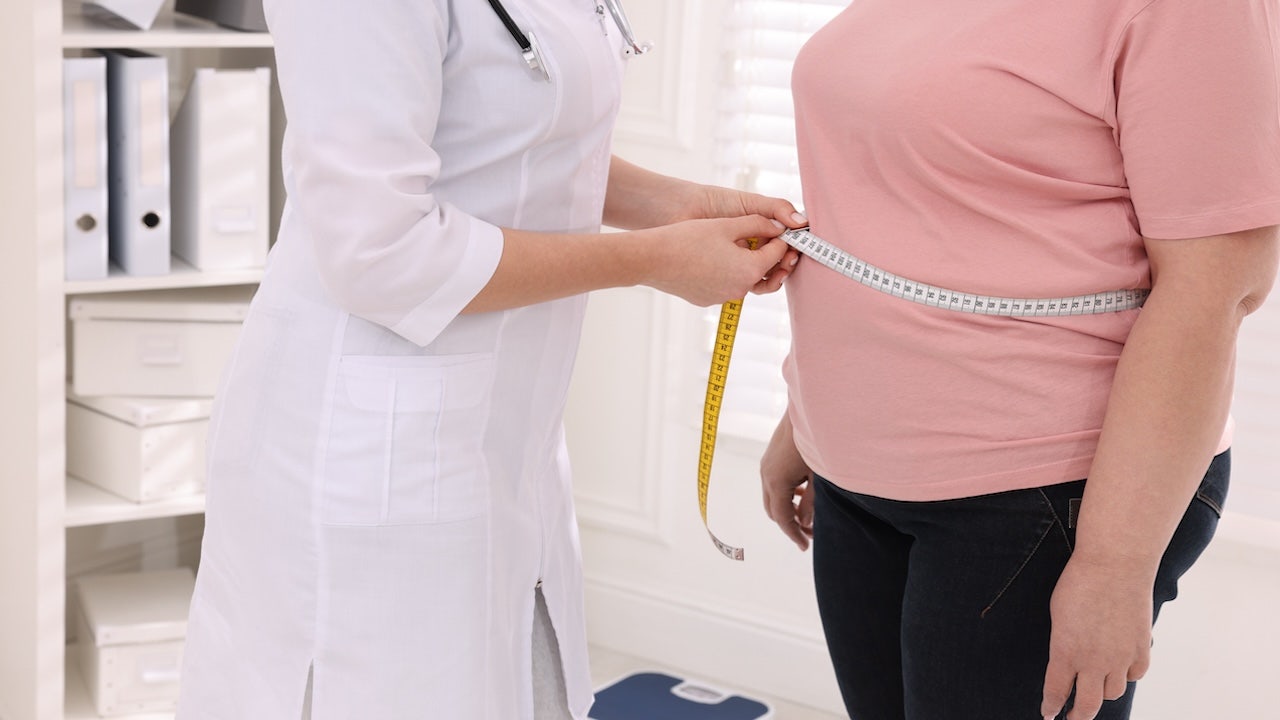Travelers may want to think twice before having a glass of wine on a flight and then grabbing some shuteye.
A new study published in Thorax, a monthly peer-reviewed publication by the British Medical Journal (BMJ), found that consuming alcohol and then falling asleep on a plane could lead to a drop in blood oxygen levels and a spike in heart rate.
The air in the cabin of a plane already has less oxygen than the air we typically breathe. Drinking alcohol can reduce oxygen levels even further — as does sleep, according to experts.
JUST ‘PLANE RUDE’ FOR PEOPLE TO INVADE YOUR PERSONAL SPACE ON A FLIGHT: HERE’S HOW TO HANDLE IT
In the study, which was led by the Department of Sleep and Human Factors Research at the German Aerospace Center, one group of healthy adults slept for two nights in a sleep laboratory.
Another group slept for the same amount of time in a hypobaric (reduced oxygen) altitude chamber that mimicked an airplane.
Consuming alcohol and then falling asleep on a plane could lead to a drop in blood oxygen levels and a spike in heart rate, a new study has noted. (iStock)
Before one of the nights, the participants consumed alcohol. The German researchers found that the people in the hypobaric chamber experienced a drop in blood oxygen, higher heart rates and a lower quality of sleep after drinking alcohol.
“[Airplane] passengers with cardiopulmonary diseases have an increased risk of aggravation of symptoms due to the decreased cabin pressure at cruising altitude, which is amplified during sleep,” the researchers wrote.
SWITCHING SEATS ON A PLANE: WHEN TO DO IT AND WHEN TO SAY ‘NO,’ ACCORDING TO EXPERTS
“Alcohol, which is often consumed on board, has similar effects, but hypobaric hypoxia-induced changes are usually more pronounced.”
This was the first study to evaluate the combined impact of hypobaric hypoxia (low oxygen concentration at high altitudes) and alcohol during sleep, according to the researchers.
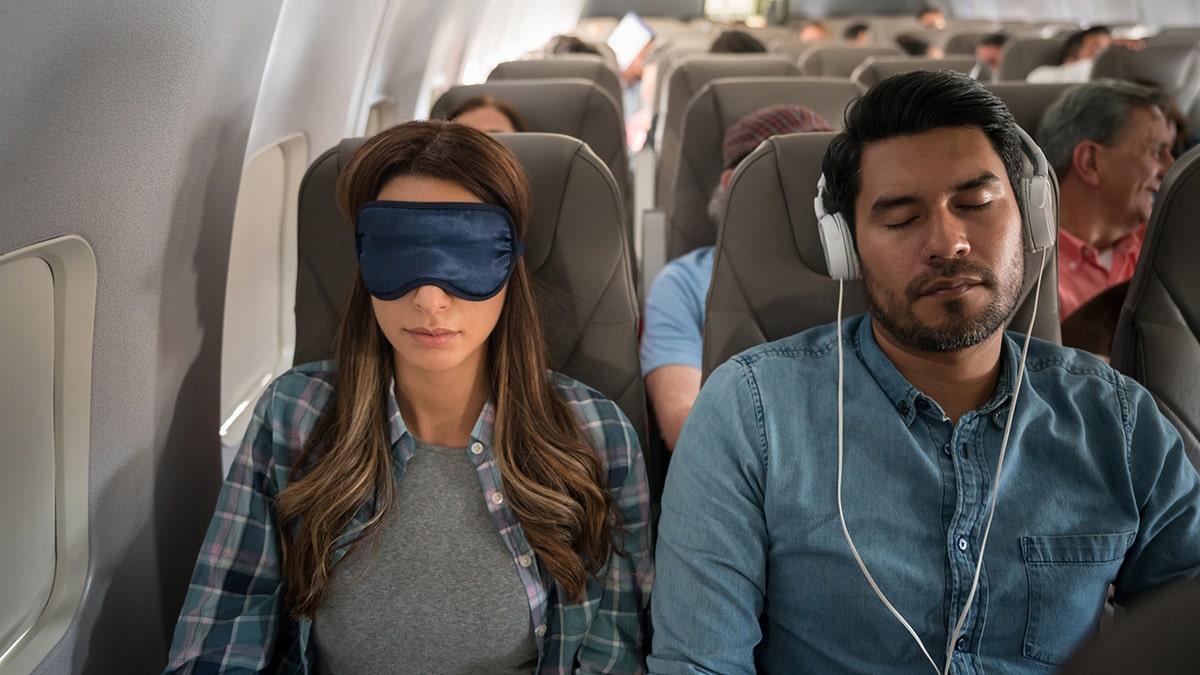
“The study showed that the ability to compensate for cabin oxygen pressure lowering in flight is worsened both by sleep and by alcohol,” a doctor told Fox News Digital. (iStock)
Dr. Marc Siegel, clinical professor of medicine at NYU Langone Medical Center and a Fox News medical contributor, was not involved in the study but called it “well-executed,” although he noted that it was on the small side, with fewer than 50 people.
“The study showed that the ability to compensate for cabin oxygen pressure lowering in flight is worsened both by sleep and by alcohol,” Siegel told Fox News Digital.
“Because of the alcohol and most likely your sleep position, you don’t get restful sleep or go through all the stages of sleep, which causes additional stress on your heart.”
“Those [factors] are synergistic with each other, leading to increased heart rate and likely increased heart pressure and risks, even in young, healthy individuals.”
The findings highlight the need to stay well-hydrated, the doctor noted, as alcohol is a diuretic and airflight is already somewhat dehydrating due to the dry cabin air.
“Be aware that although restive sleep on long flights makes sense, it may interfere with REM sleep and quality of sleep — and may affect oxygen pressure to the point where it is below 90%,” Siegel warned.
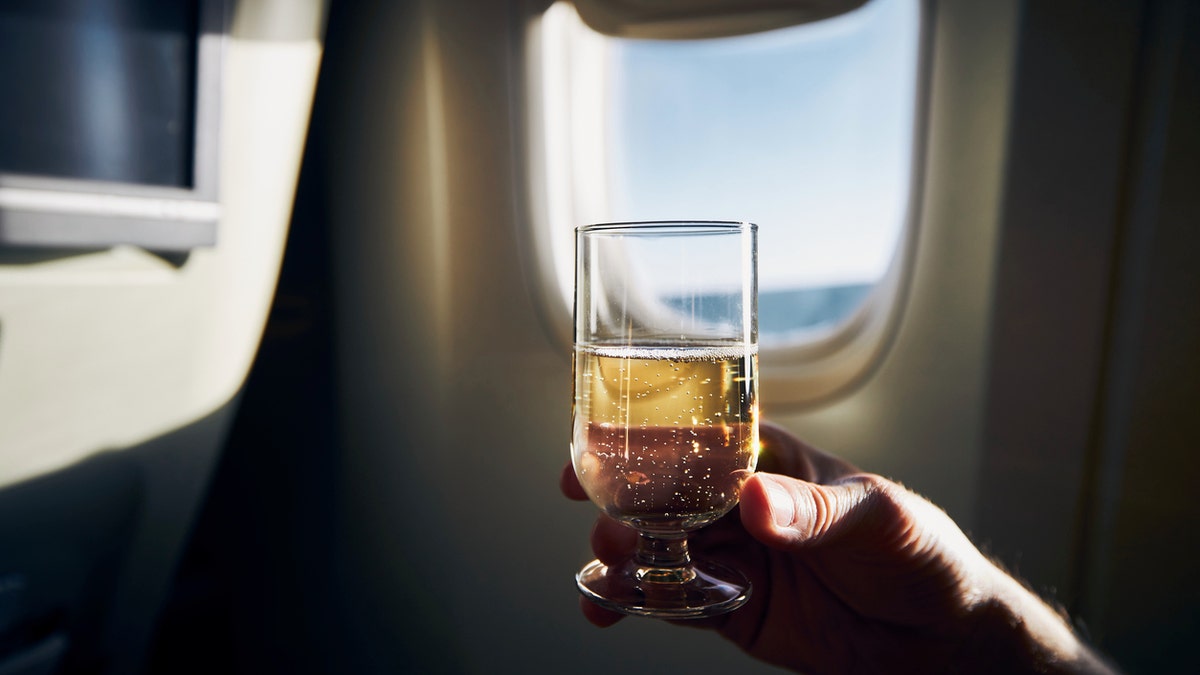
Alcohol is a diuretic and airflight is already somewhat dehydrating due to the dry cabin air, the researchers said. (iStock)
Dr. David Campbell, clinical and program director of Recover Together in Bend, Oregon, who was also not involved in the study, said it supports the findings that alcohol consumption and sleep combined with the pressurized environments found on airplanes reduces oxygen levels and increases heart rate.
“Sleep deprivation has been closely associated with increases in irritability, agitation and brain fog, as well as escalations of anxiety, depression and challenges with mood regulation and memory — things most people would typically like to avoid on their next family vacation or business trip,” he told Fox News Digital.
“I would caution those with obstructive sleep apnea, COPD or obesity from consuming alcohol pre-flight or in-flight.”
While Campbell echoed Siegel’s comment that the study is small in scale, he said the findings should be investigated further to gauge the physiological and psychological impact.
“Despite the need for further research and a larger sample size, I would caution those with obstructive sleep apnea, COPD or obesity against consuming alcohol pre-flight or in-flight, to avoid co-consumption of alcohol and other sleep aids or medicines, and to limit blue light to improve sleep quality and mood when traveling,” he advised.
Alcohol alternatives on planes
Dr. Adam Scioli, chief medical officer at Caron Treatment Centers in Pennsylvania, noted that most people drink alcohol when flying to fall asleep or to manage their stress, which itself increases the risk of a cardiovascular event.
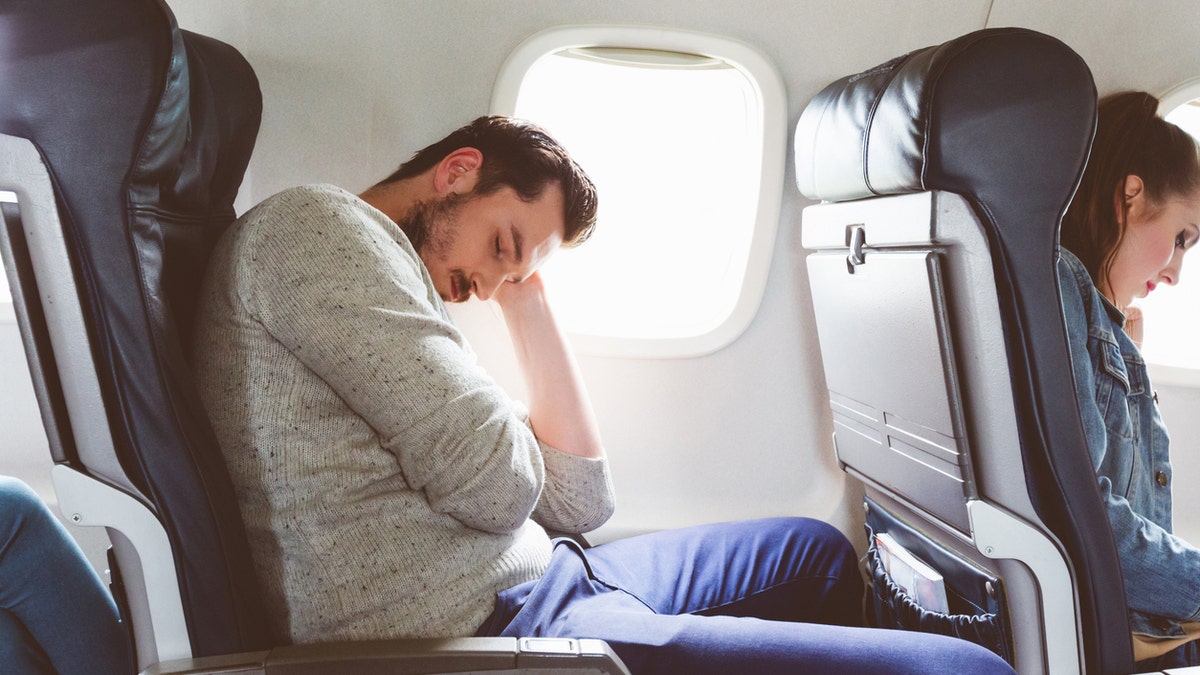
“You’ve got a situation where because of the alcohol and most likely your sleep position, you don’t get restful sleep or go through all the stages of sleep, which causes additional stress on your heart and cardiovascular system,” said a chief medical officer. (iStock)
“Now you’ve got a situation where because of the alcohol and most likely your sleep position, you don’t get restful sleep or go through all the stages of sleep, which causes additional stress on your heart and cardiovascular system,” Scioli, who was not involved in the study, told Fox News Digital.
CLICK HERE TO GET THE FOX NEWS APP
“This can be exacerbated by the fact that many people don’t drink enough water before they fly, which causes dehydration — again increasing the likelihood of negative impact on their heart.”
CLICK HERE TO SIGN UP FOR OUR HEALTH NEWSLETTER
There are other, more effective ways to manage stress and reduce anxiety than drinking, according to Scioli.
Some of those include breathing, mindfulness and reading a book.
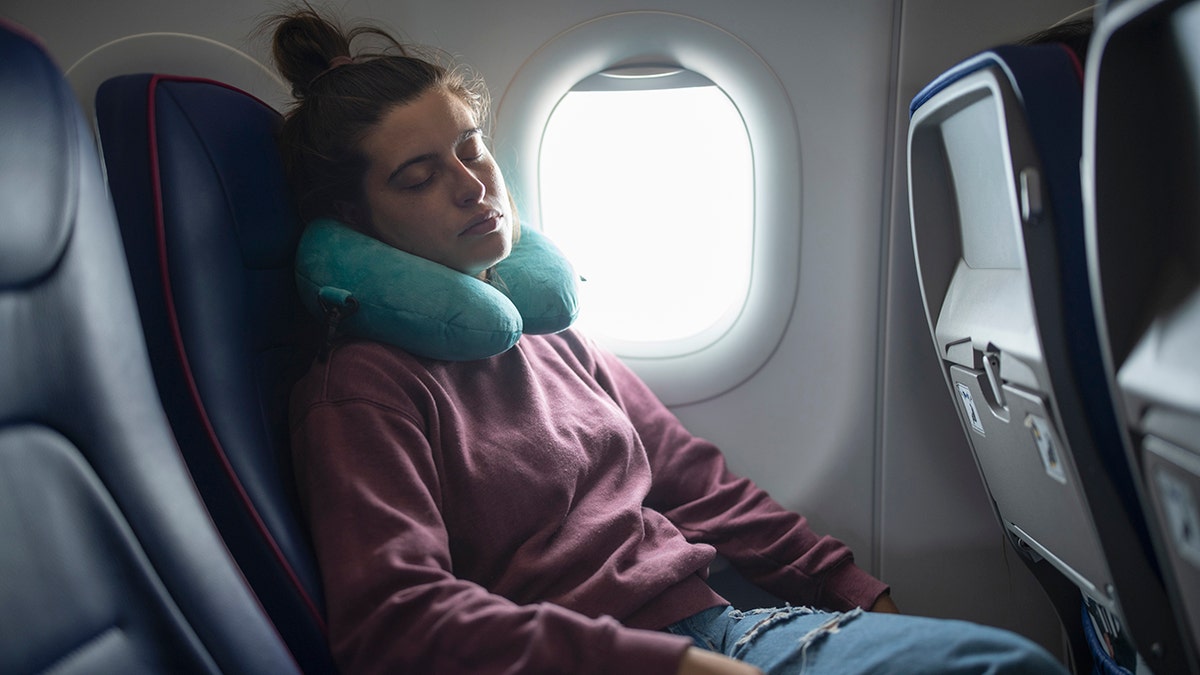
An expert recommended other ways to manage stress and reduce anxiety, such as breathing, mindfulness and reading a book. (iStock)
“Finally, to avoid cardiovascular events due to hypobaric hypoxia, drink plenty of water, eat a healthy meal and plan to manage stress during take off and landing,” Scioli advised.
“Know your heart health and take necessary precautions,” he said. “Avoid alcohol, cannabis and other drugs that can add stress to your cardiovascular system.”
For more Health articles, visit www.foxnews/health
Anyone who has a true panic disorder or fear of flying should talk to a medical professional about medications that can be useful.
Fox News Digital reached out to the researchers requesting further comment.


